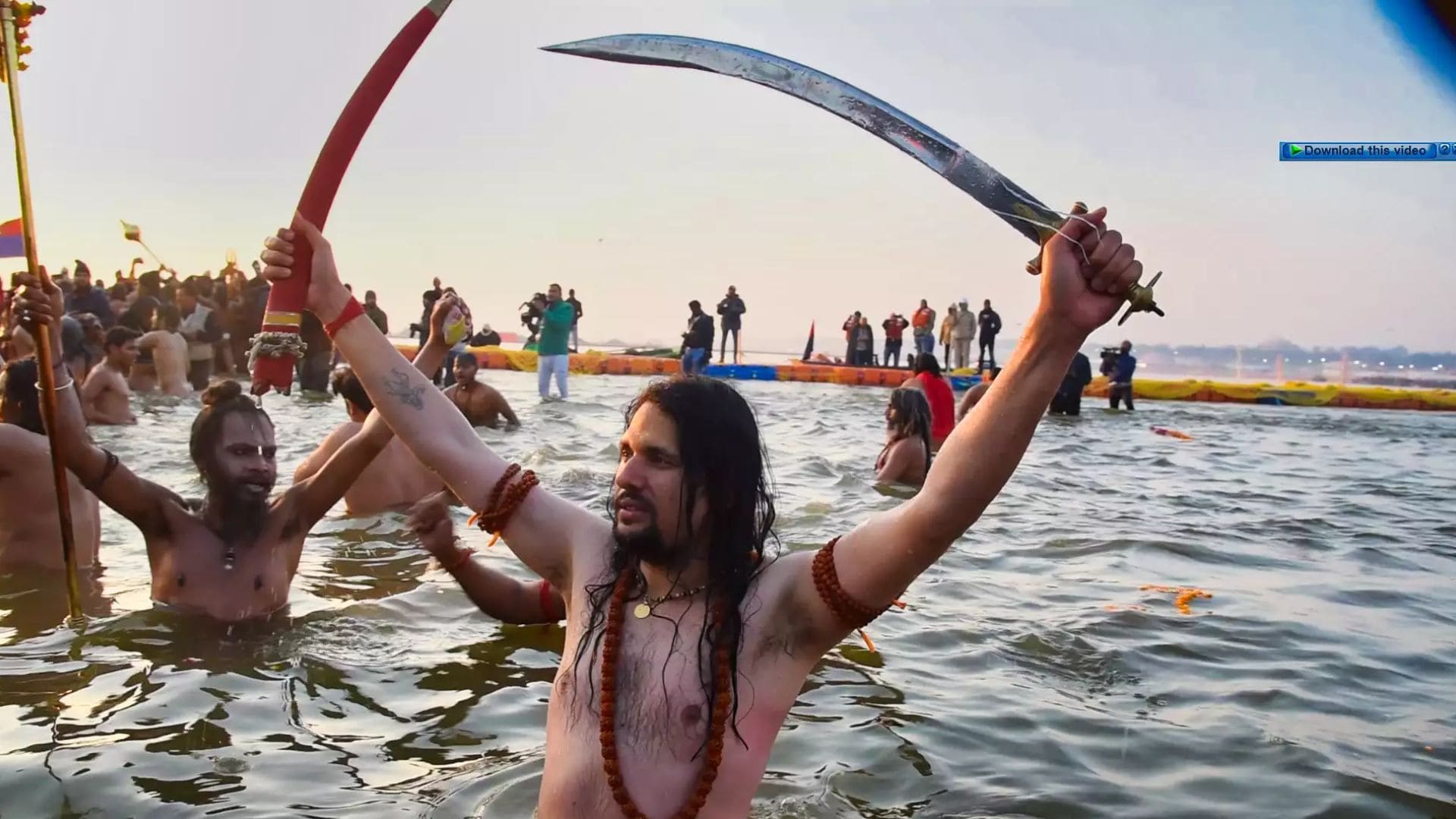
Major Events and Ceremonies at Maha Kumbh Mela 2025
Major Events and Ceremonies The Maha Kumbh Mela is renowned for its grand religious and cultural events, attracting millions of devotees, spiritual leaders, and curious travellers. At the heart of these festivities are the key ceremonies, particularly the Shahi Snan (Royal Bath), which serves as the most significant ritual of the Kumbh Mela. But beyond the Shahi Snans, the Mela offers a host of spiritual and cultural activities, creating a vibrant atmosphere full of devotion and reflection.
- Shahi Snan (Royal Bath) The Shahi Snan is the ceremonial highlight of the Kumbh Mela, where ascetic orders, known as Akharas, lead grand processions to the river for a holy dip. The most prominent among them are the Naga Sadhus, who are known for their austerity and renunciation of worldly pleasures. These sadhus, often covered in ash and adorned with intricate body art, represent the spiritual fervour of the event. The Naga Sadhus and other ascetics take the first royal bath on the designated dates, followed by millions of devotees who immerse themselves in the sacred rivers.
Screenshot 344
Each Shahi Snan is accompanied by colourful processions, religious chants, and the blowing of conch shells, signifying the purification of the body and soul. The Shahi Snans in 2025 will take place on:
January 14 (Makar Sankranti) January 29 (Mauni Amavasya) February 3 (Basant Panchami) These dates are considered the most auspicious, attracting the largest crowds and the presence of key religious figures.
-
Spiritual Discourses and Bhajans Throughout the Kumbh Mela, various religious leaders, gurus, and scholars deliver spiritual discourses on topics related to Hindu philosophy, the meaning of life, and paths to spiritual enlightenment. These talks attract thousands of listeners, offering a unique opportunity to hear insights from revered saints. Alongside these discourses, devotional singing or bhajans fill the air with chants praising Hindu deities, creating a powerful and uplifting atmosphere for all attendees.
-
Yogasanas and Meditation Many visitors take the opportunity to engage in yoga sessions and meditation workshops during the Mela. These sessions are designed to help participants attain mental peace and physical well-being, complementing the spiritual cleanse they seek through the ritual baths. Some of these sessions are led by renowned yoga practitioners, providing an ideal environment for spiritual and physical rejuvenation.
-
Cultural Performances The Kumbh Mela is also a showcase of India’s rich cultural heritage. Throughout the event, there are vibrant performances of traditional music, dance, and theatrical representations of ancient epics like the Ramayana and Mahabharata. These performances not only provide entertainment but also deepen the spiritual experience by connecting the audience with India’s mythological stories and values.
-
Akharas and the Ascetics The Akharas, religious orders of sadhus and ascetics, are a central feature of the Kumbh Mela. Each Akhara follows its traditions, but collectively, they symbolize renunciation, spiritual dedication, and the pursuit of enlightenment. Attendees of the Kumbh Mela often gather to witness the Naga Sadhus, who are the most well-known of these groups for their extreme ascetic practices and their vow of nudity, symbolizing their detachment from worldly desires.
Similar Stories
Discover the grandeur of Mahakumbh 2025 in Prayagraj, a once-in-144-years spiritual event. Join over 450 million devotees for sacred Shahi Snans, celestial alignments, and spiritual festivities at the Sangam. Explore modern AI-driven facilities, enhanced infrastructure, and timeless tradition
Discover the spiritual significance of the Shahi Snan, the central ritual of the Maha Kumbh Mela, where millions of pilgrims immerse in the holy rivers at auspicious times. Learn how this sacred bath at the confluence of the Ganga, Yamuna, and the mythical Saraswati in Prayagraj is believed to cleanse sins, break the cycle of rebirth, and lead to Moksha — ultimate spiritual liberation.
Discover the spiritual and cultural essence of the Kumbh Mela, held every twelve years in Prayagraj at the confluence of the sacred rivers Ganga, Yamuna, and Saraswati. Learn about its deep spiritual significance, rituals like the holy dip (Shahi Snan), the belief in attaining moksha (liberation), and its global attraction with millions of devotees, including foreigners, participating to experience purity, healing, and enlightenment.
Astrology, Mantras, Events, Stories & More.
